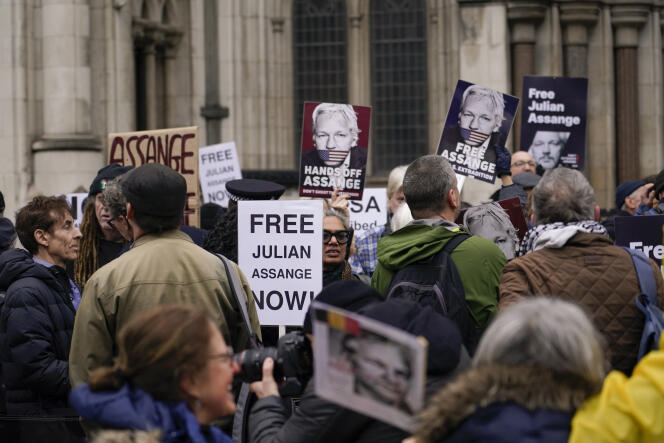


For Julian Assange, the hour of final recourse has come. The fate of the WikiLeaks founder who was behind the publication nearly 15 years ago of hundreds of thousands of confidential documents on the military and diplomatic activities of the United States, particularly in Iraq and Afghanistan, is now hanging on the decision of two British judges.
They are due to consider on February 20 and 21 the decision of London's High Court of Justice, which in June 2023 objected to Assange's ability to appeal his extradition to the US accepted by the British government a year earlier. Assange, an Australian citizen, is being prosecuted for espionage, the charge levied in 2019 by Donald Trump's administration, which carries a potential sentence of 175 years in prison.
We can only hope that the two judges will show Assange a sign of humanity, enabling him to continue to fight against extradition, which, if it were to materialize, would feed the inextinguishable vindictiveness of the US. There are plenty of reasons to hope for this. What would be the guarantees of a fair trial? And what would be the value of the current US authorities' commitment not to incarcerate him in a maximum-security prison after a possible conviction, synonymous with banishment from the world, in the event of a political turnover?
The whistleblower – who in 2010 joined forces with five newspapers, including The Guardian, The New York Times and Le Monde, to publish leaked documents while guaranteeing the protection of sources – contributed to the rise of a new type of investigative journalism dedicated to processing tens of thousands of digital data files.
Unfortunately, Assange then got caught in a number of pitfalls. From his strategy of avoidance in the face of sexual assault accusations, now withdrawn, to his compromises with the Russian regime, no doubt out of anti-US blindness, his image and credibility have been considerably eroded.
For over 10 years, with his voluntary confinement in the Ecuadorian embassy in London to escape his first prosecution, then his imprisonment in the high-security Belmarsh prison near the British capital, he has already lost his freedom. And his health regularly gives cause for concern.
The prime minister of his home country, Anthony Albanese, commented on Assange's bleak trajectory when he said that, whatever one's opinion of him, the persecution he has been subjected to must stop. The Australian Parliament has just passed a motion calling for an end to these legal proceedings. As a member of the close-knit "Five Eyes" club, an alliance based on intelligence cooperation between Australia, Canada, New Zealand, the United Kingdom and the US, Canberra cannot be suspected of disloyalty to Washington.
Assange played an important role in exposing the blunders of the US's "war on terror." The revelations were certainly a test for the US, but the superpower must now agree that history has decided in the whistleblower's favor. The courts should draw inspiration from this verdict when handing down their own.
Translation of an original article published in French on lemonde.fr; the publisher may only be liable for the French version.
